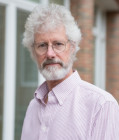How Policy Ideas are Developed in The United States and Europe
Ideas matter in politics and the formulation of public policies, but until now too little attention has been paid to how policy-relevant ideas are produced and disseminated. In our new book about The National Origins of Policy Ideas, Ove Pedersen and I provide the first comparative analysis of how this works in various advanced nations. We describe what we call “knowledge regimes” – networks of policy research organizations such as think tanks, political party foundations, ad hoc commissions and state research offices – and ask how they generate and communicate findings and ideas to policymakers. We track changes in knowledge regimes over the last thirty years in the United States, France, Germany, and Denmark.
America’s Competitive – And Increasingly Acrimonious – Knowledge Regime
In the unusually competitive U.S. knowledge regime, privately funded think tanks often take center stage in public debates and policymaking. Historically, serious research organizations like the Brookings Institution and the American Enterprise Institute played the key roles, with their experts writing academic-style articles and hefty books. But since the 1970s much more aggressive advocacy operations like the Heritage Foundation and the Cato Institute on the right and the Center for American Progress on the left have also assumed leading roles. Their experts produce short policy briefs and use newspaper OpEds, blog postings, video clips, and other media savvy techniques to sway public opinion and influence policymakers more quickly and directly than the old-style think tanks were able to do. Their appearance on the scene has made the tenor of public debate more acrimonious and shrill, giving reality to the notion of a war of ideas. Changes in the U.S. knowledge regime have fueled partisanship and political gridlock, turning policymaking into a blood sport.
To be sure, the United States still has a number of respected government research agencies like the Congressional Budget Office and the Government Accountability Office that do rigorous policy analysis in a nonpartisan fashion. What is more, as the private sector policy research became polarized, a few prominent experts launched bridge-building efforts. For example, the Fiscal Wake-Up Tour was organized in 2005 by experts at the Brookings Institution, the Heritage Foundation, the American Enterprise Institute, and other organizations, people who aim to convince policymakers that the country’s fiscal problems are so severe that ideological differences should be set aside in favor of solutions they consider to be in the national interest. Washington DC policymakers, such bridge-builders argue, need to get serious about addressing fiscal challenges, using analyses and bipartisan proposals they aim to supply.
The European Contrast
In Europe, research organizations operate – and cooperate – to promote policy compromises.
- Twice each year in Germany’s coordinated knowledge regime, the powerful Ministry of Economics and Technology commissions a handful of prominent policy research institutes connected with prestigious universities to produce a Joint Economic Report with economic forecasts and policy recommendations. Reports are supposed to reflect consensus conclusions, and the Ministry relies on them for the preparation of its own forecasts, recommendations and policies. In addition, the German Ministry convenes an annual closed-door meeting of research institute representatives, officials from various ministries and other experts to share forecasts and policy ideas and discuss how the government should handle the country’s most pressing problems. Confidential discussions are meant to reveal where participants stand on key issues before the government moves forward, allowing German politics to avoid U.S.-style hyper-partisanship and gridlock.
- Denmark’s negotiated knowledge regime is even more focused on building consensus. For example, the state-funded Danish Economic Council includes representatives from the major labor and employer associations, the central bank, key ministries, and other important economic organizations. It is run by four economists whose job is to make forecasts and policy recommendations and facilitate consensus. The Danes also solicit recommendations from state funded ad hoc commissions staffed by experts in areas such as welfare or labor market policy. Ideally, each ad hoc group arrives at consensus after extensive consultation with labor unions, employer associations and other interested organizations. Participating organizations often share data, work on joint policy recommendations, and even lobby Parliament to adopt agreed-upon solutions.
- France’s statist knowledge regime depends heavily on government expertise, particularly from the national statistical institute and the Ministry of Finance. In comparison to other nations, French policymaking since World War II has remained relatively insulated within the state, but since the early 1990s, efforts have also been made to tap ideas from outside of government. To that end, the French Prime Minister’s office asks the Council of Economic Analysis, which conducts studies and makes policy recommendations of all sorts, to draw input from a variety of experts across the political spectrum, including university scholars. Analyses are performed, opinions expressed and a final report covers the full debate. The Council does not always agree, but the process encourages civil debate. Similarly, the Prime Minister’s Center for Strategic Analysis uses input from policy research organizations inside and outside the government to craft joint forecasts and policy recommendations with an eye toward consensus.
The U.S. knowledge regime may suffer from excessive partisanship and gridlock, but it does encourage a diversity of viewpoints often missing in other countries. Public policymaking can benefit from that, if partisan deadlock does not intervene. No knowledge regime is perfect, but the United States today could strive for a better combination of diversity and consensus-building. Emulating some European practices – without sacrificing competition – might improve U.S. public policymaking and help overcome partisan gridlock in Washington DC.
